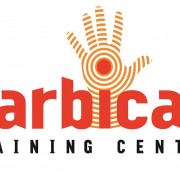Below is a recent article from the Nelson Mail about one of our clients, Vortex Spas making a very generous donation to help local kids. Photo is courtesy of Nelson Mail & Fairfax Media
Congratulations Andrew, what a great initiative.
A generous donation from a local business has helped Victory Primary School provide food for disadvantaged pupils.
The school had applied for the help of charitable trust KidsCan, which provides food, clothing and other basic needs for those in need.
But KidsCan has a waiting list because they’re already helping 500 schools and more than 115,000 children around New Zealand.
Victory’s large role of 400-plus pupils also meant it faced a long wait, potentially years, to get into the programme. That’s when Vortex Spas came in.
Managing director Andrew Pullen said the company didn’t know about the school’s application when he approached KidsCan about becoming “more proactive” in their support of local charities.
“We wanted to support our own community first and foremost, we wanted to support the most disadvantaged section of the community and we want to support basic needs first.”
Vortex Spas donated $15,000 cash to KidsCan, which saw Victory Primary School accepted into the programme providing lunches for pupisl.
“It’s the teachers and the staff here that really do the heavy lifting,” Pullen said.
The school and the spa business are now organising a raffle to raise $10,000 in funds with the aim to get raincoats for all pupils and shoes for those that need them.
“What we’re really looking for is for the whole of Nelson to be supporting this. If we receive some great success, we’ll be extending out outside of just the Victory area,” Pullen said.
Tickets for the raffle are $5 and available from Benge & Co greengrocers, Stacey Clothing in Richmond, Victory School reception and at a stall at the Nelson Market.
The first prize is a Vortex Spa pool valued at over $11,000. The second prize is a Weber BBQ valued at $1000. Other prizes include Stacey Clothing vouchers, Pestell’s meat vouchers and Benge & Co green grocer voucher.
The winning ticket will the drawn at Victory Primary School on July 8 at 10am.
The top five ticket sellers from Victory Primary School will go on a training run with the Tasman Makos, Pullen said.
School principal Helen Taylor-Young she was quite overwhelmed by Vortex Spas generosity.
“The great thing for us is that it means can get on with the teaching and learning,” she said.
“I feel very privileged that Andrew chose us first.
“The great thing here is that we got a good infrastructure with the community centre and the school partnership, it’s a great place to roll it out and to trial it here.”







